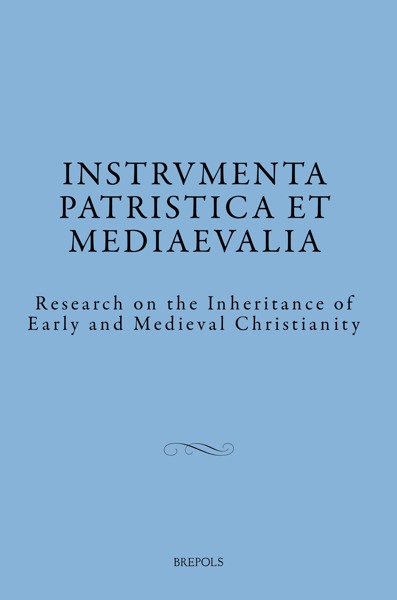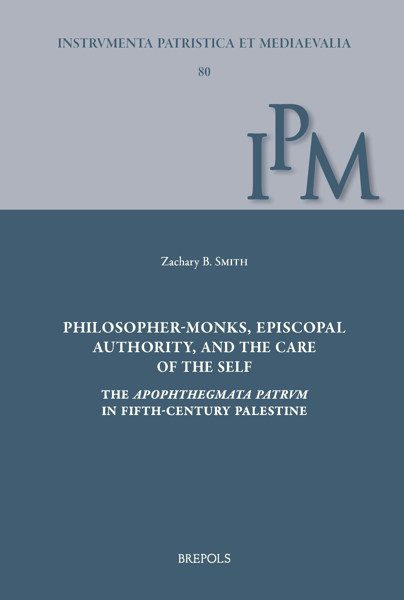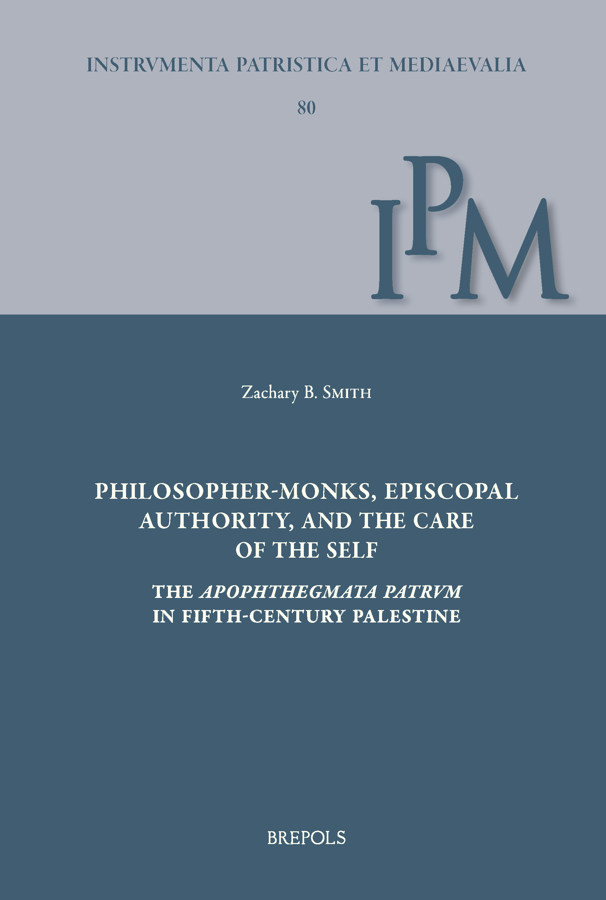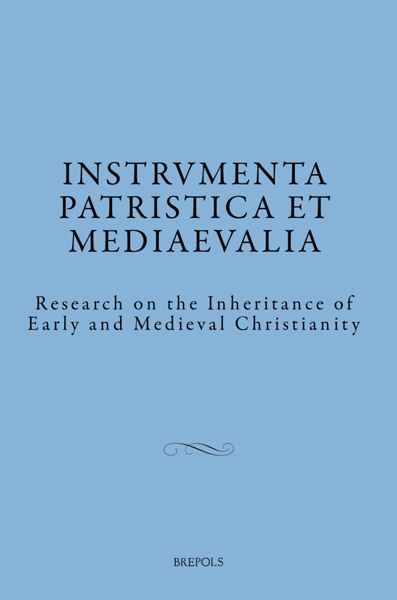
Philosopher-monks, episcopal authority, and the care of the self
The Apophthegmata Patrum in fifth-century Palestine
Zachary Smith
- Pages: 327 p.
- Size:156 x 234 mm
- Illustrations:22 tables b/w.
- Language(s):English
- Publication Year:2018
- € 100,00 EXCL. VAT RETAIL PRICE
- ISBN: 978-2-503-57888-0
- Hardback
- Available
- € 100,00 EXCL. VAT RETAIL PRICE
- ISBN: 978-2-503-57895-8
- E-book
- Available
Zachary B. Smith reads the Apophthegmata Patrum in the philosophical and political contexts of late antique Palestine. He explores how the compiler asserts monastic autonomy from ecclesiastics by incorporating classical and late antique philosophical categories, and by selectively presenting problematic interactions between monks and ecclesiastics.
Zachary B. Smith, Ph.D., is an Assistant Professor in the Department of Theology at Creighton University (Omaha, Nebraska). He researches the connections between Christianity and its cultural contexts, specializing in the late antique and Byzantine periods. He is also Associate Editor of the Journal of Religion & Society, and a Faculty Associate of the Kripke Center for the Study of Religion and Society (Creighton University).
This volume explores the Apophthegmata Patrum in the context of church-monastery dynamics in fifth-century Palestine. Positing that the AP was compiled in response to perceived external interference, Zachary B. Smith provides the first examination of the AP in its Palestinian context, illuminating monastic strategies for resisting episcopal control. Engaging literary and historical methods, this volume weaves a narrative that places the AP squarely in the political and philosophical worlds of the eastern Mediterranean in late antiquity. The AP’s compiler carefully selects stories to highlight problematic interactions between monks and ecclesiastics. He then appeals to classical and late antique philosophical categories of self-care to assert monastic autonomy, making the monks the new philosophers. In the context of contentious theological debates during the fourth and fifth centuries, these selected interactions and assertions tacitly advocate a path of monastic autonomy.
Introduction: The problem of writing
Chapter 1: The text and production of the Apophthegmata Patrum
Section I: Texts and church authority
Chapter 2: Asserted authority in late antique Christian literature
Chapter 3: Authority in the Apophthegmata Patrum
Section II: Self-care and the philosopher-monks
Chapter 4: Self-care in classical and late antiquity
Chapter 5: Self-care in the Apophthegmata Patrum
Conclusion: Contextualizing the AP




